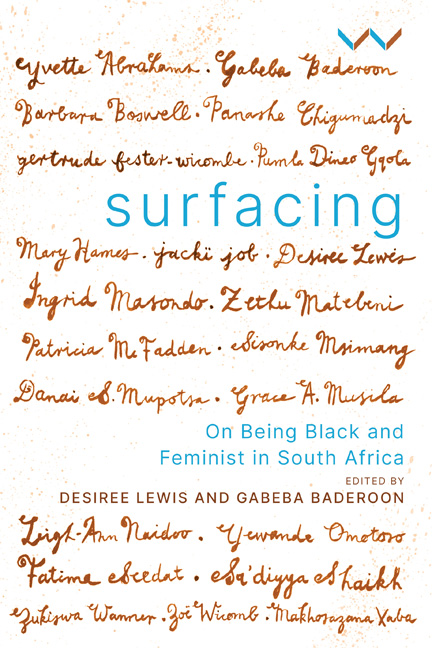Book contents
Chapter 13 - ‘Do I Make You Uncomfortable?’ Writing, Editing and Publishing Black in a White Industry
Published online by Cambridge University Press: 15 April 2021
Summary
The journey to my first novel, The Madams, is a story I have repeated often in interviews, charmed as it seemed to be. In 2004, a year after returning to South Africa from Hawai’i where I had been studying, via the United Kingdom, unable to find a job in the field of journalism which I loved, I started working at the Alf Kumalo Museum in Soweto. It was here that I met the late writer and essayist Lewis Nkosi during a small staff braai Alf hosted. Lewis emailed a ‘returned safely, ‘twas nice to meet’ note on his return home to Switzerland, and a literary friendship was born. Every time something on the South African political scene riled me, I would write the sort of outraged, if dark-humoured, pieces that I wished I could have written for South African newspapers, if any of them had responded in the affirmative (or at all) to just one of my application letters. Instead, I would send my opinions off to Lewis.
Reminiscent of my old faculty editor and journalism professor at university, one Larry Le Doux, Lewis would take time to engage, then fill the pieces with notes on what had failed to work, and what points should be teased out further. Although the pieces had lots of editorial notes, he would also be complimentary of what worked. In that way, he never shattered my confidence, and I learned to take the criticism in my stride. Invariably he would end each of these emails with, ‘You should seriously consider writing fiction.’ And I would retort, ‘I am too much of a realist to write fiction.’ And he would return, ‘That is the greatest bullshit you’ve ever written and the best fiction you use to keep trying to convince yourself.’ In February 2005, Lewis was yet again in Johannesburg. I was unaware, and bumped into him at a Dumile Feni exhibition at the Johannesburg Art Gallery. He was chatting to some relative of the then president.
‘Have you met Zukiswa Wanner?’ Lewis asked the man he was in conversation with.
‘No, I can't say I have.’
‘She is one of the best young writers we have in this country today,’ Lewis responded, hyperbolically.
- Type
- Chapter
- Information
- SurfacingOn Being Black and Feminist in South Africa, pp. 184 - 197Publisher: Wits University PressPrint publication year: 2021



